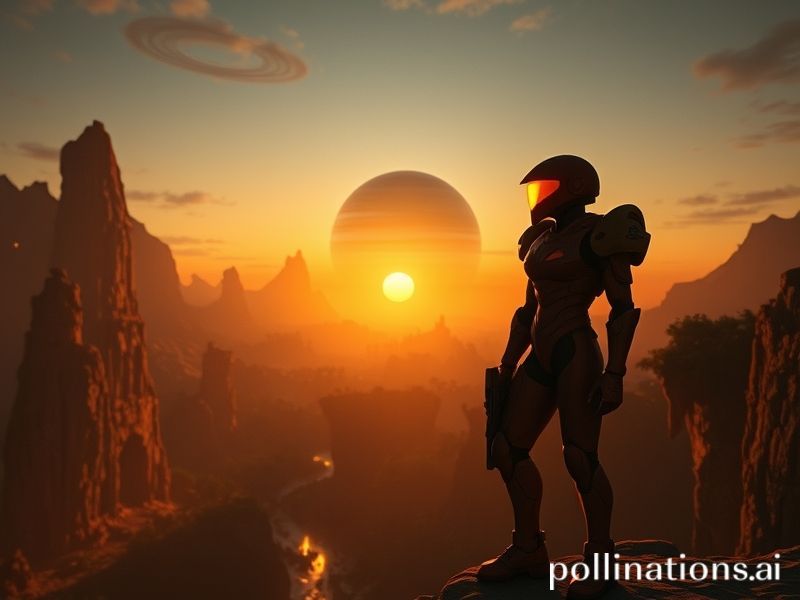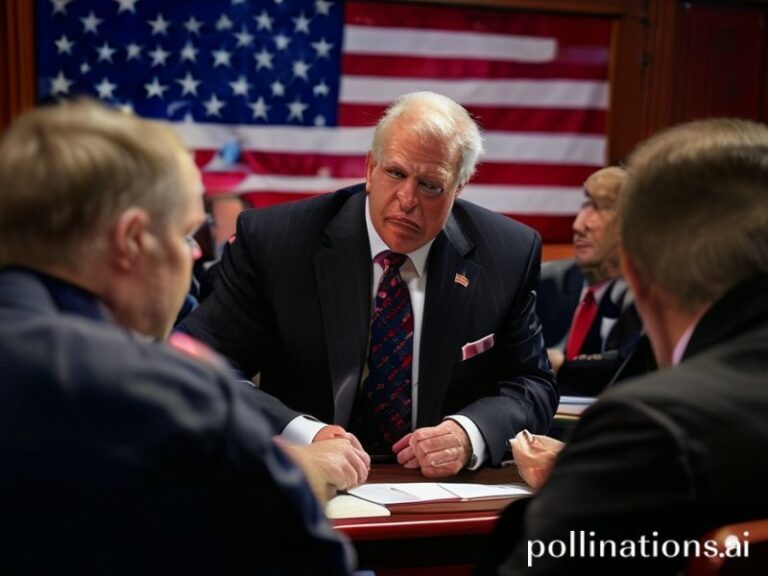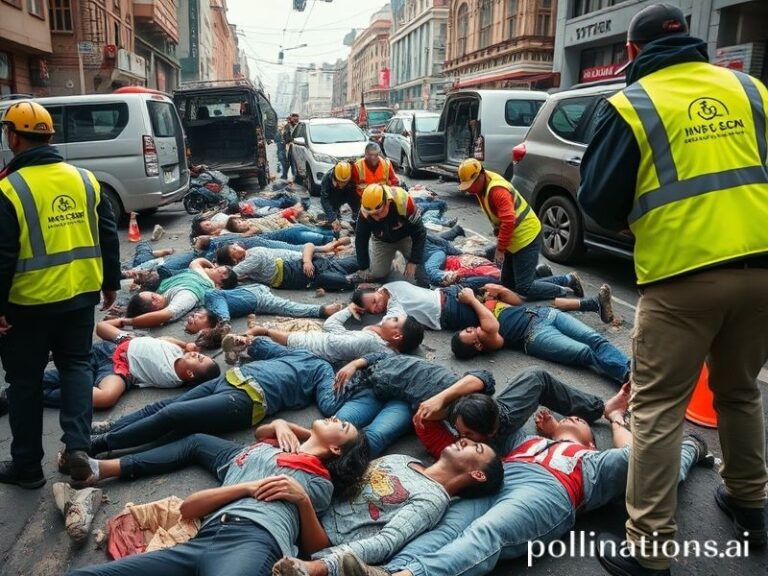Galactic Unity Delayed: How Metroid Prime 4 Accidentally Became the Planet’s Last Shared Delusion
From the Bullet Train to the Bounty Hunter: *Metroid Prime 4* and the World’s Longest, Quietest Crisis
Tokyo, Japan – Early yesterday Nintendo released a 56-second teaser for *Metroid Prime 4: Beyond* that detonated across the planet with the polite force of a Swiss avalanche. Within minutes, #SamusAran trended in 38 languages. Seoul’s KTX bullet-train commuters rewatched the clip on silent mode, Parisian baristas streamed it on mute above their espresso machines, and in São Paulo the 3G signal briefly coughed itself to death, presumably from the collective bandwidth of hope.
Which is touching, really, because hope is the one commodity currently trading above even oil and microchips. While the United Nations Security Council debated whose turn it is to veto whom, humanity found itself united by a woman in orange armor blasting aliens in 4K. Call it soft power with a plasma beam.
The backstory is almost too perfect. *Metroid Prime 4* was announced in 2017, restarted in 2019, and has spent half a decade in the kind of development limbo usually reserved for peace treaties. Retro Studios—based improbably in Austin, Texas, a city that can’t decide if it’s Silicon Valley with barbecue or Berlin with better tacos—quietly rebuilt the project from scratch. Meanwhile, global supply chains snapped, pandemics bloomed, and a handful of billionaires took up residency in low-Earth orbit. Throughout, Nintendo said nothing, betting, correctly, that silence ages like Japanese whisky while hype spoils like milk.
It worked. Yesterday’s teaser clocked 12 million views before the Tokyo Stock Exchange’s lunch break, sending Nintendo’s share price up 3.2 percent—enough to buy several small island nations or at least a modest super-yacht. Analysts in London who normally measure geopolitical risk in barrels and battalions were suddenly quoting Ridley Scott and Metroidvania sub-genres. If that sounds absurd, remember that the last *Metroid Prime* shipped in 2007, the same year the iPhone debuted and nobody had yet weaponized Twitter. The trilogy’s total sales now exceed 10 million—pocket change for *Call of Duty*, but astronomical for a franchise whose protagonist has spoken roughly six canonical sentences.
The international angle is richer than a Swiss bank account nobody admits to having. Nintendo’s Kyoto headquarters sits 400 miles from Fukushima, a reminder that even in the cradle of kawaii, radiation leaks and supply-chain tsunamis are never more than one tectonic shrug away. Yet Japan keeps exporting comfort food in digital form: Pokémon, Mario, and now Samus Aran, the galaxy’s most emotionally unavailable single parent. In an era when real astronauts post selfies from the ISS sponsored by deodorant brands, a fictional bounty hunter who never removes her helmet feels refreshingly honest.
Europe, meanwhile, has adopted Samus as an unwitting climate-change metaphor. French critics praise the Chozo—mystical bird-people who ruin planets through unchecked biotech—as thinly veiled stand-ins for the G7. German fans debate whether the Space Pirates are late-stage capitalism or just Amazon Prime in 500 years. In Poland, modders are already translating the inevitable PC emulator into Ukrainian, because nothing says solidarity like sharing ROMs during rolling blackouts.
Across the Pacific, the United States treats *Metroid* less like art and more like a national-security issue. Texas senators who wouldn’t fund public libraries if they came with free brisket suddenly champion federal grants for game studios “to compete with China.” Microsoft, fresh from trying to buy the planet, now lobbies to classify Retro Studios as critical infrastructure—presumably somewhere between the Strategic Petroleum Reserve and Beyoncé.
And China? Netizens behind the Great Firewall have already reverse-engineered the trailer into a 40-page dossier proving Samus is anti-China because her visor reflects a map where Taiwan is not the same color as the mainland. The rest of the world shrugs; Nintendo’s Q&A simply stated that the game “takes place in a fictional galaxy,” a phrase that doubles nicely as geopolitical commentary.
All of which is to say that *Metroid Prime 4* is not just another sequel. It’s the rare piece of culture that arrives after the world has already ended twice, offering a vacuum-sealed nostalgia for a future we were promised and never got. It won’t fix microchip shortages, convince oligarchs to pay taxes, or stop the oceans from turning into artisanal soup. But for roughly 20 hours of gameplay—longer than most ceasefires last—millions will pilot a solitary warrior through alien ruins and feel, if not optimistic, then at least competently armed.
In the end, that may be the most international language left: the quiet, metallic click of a power-suit locking into place, followed by the soft universal sigh that says, “Fine. Let’s get on with it.”







